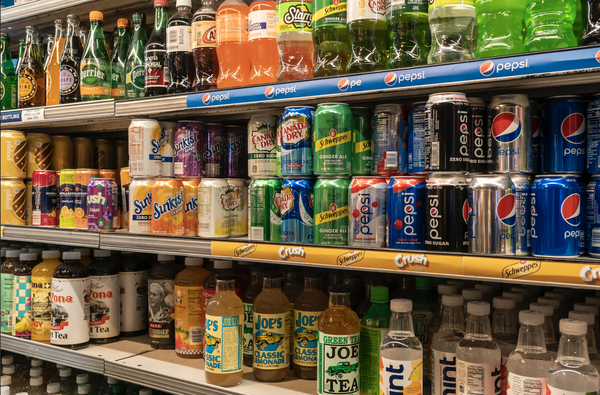Most people know that keeping their sweet tooth in check is best for their health, but consuming different types of sugar can have varying health effects.
Drinking sugary beverages, including soda and fruit drinks with added sugar, puts people at higher risk for heart disease than eating some baked goods, according to a new study that compared the effects of three categories of sugar consumption – sugary drinks, toppings and baked goods. The findings, published Monday, also indicated a link between lower treat consumption and a higher risk for cardiovascular disease.
MORE: A few nibbles of dark chocolate a day may help prevent type 2 diabetes
"One theory is that people with very low sugar intake might be replacing sugar with other unhealthy foods or nutrients," the study's lead author, Suzanne Janzi, told CNN.
It is also possible that people who limit their sugar consumption are doing so because of existing health issues, Janzi added.
The findings were based on data from 70,000 people in Sweden who completed surveys about their diet and lifestyle between 1997 and 2009. National health registers through 2019 recorded their outcomes for stroke, heart attack and heart failure.
Soda and fruit juice with added sugars were associated with the highest risks of heart failure, stroke and aortic aneurysm, the study found. Overall, people who had more added sugar in their diets had worse cardiovascular outcomes.
A large body of research has shown the negative health impacts of sugary soda, including increased risk for obesity, diabetes, cancer and cardiovascular disease.
People who consume sugary drinks do not feel as full as they would had they eaten the same amount of calories in solid food. People also don't cut back on calorie consumption elsewhere when consuming sugary drinks, according to Harvard Health.
The latest study's limitations included that it relied on self-reported data and that he people in the study were of European descent, researchers said.
Consumption of sugar drinks has gone down in the United States over the past decade. But research shows that half the U.S. population consumes sugary drinks on any given day. About 1 in 4 people consume at least 200 daily calories from sugary drinks and 5% get about 560 calories daily from sugary drinks. That amounts to about five sodas a day.
These levels exceed federal health recommendations to consume no more than 10% of one's total calories from added sugar. For a 2,000-calorie diet, that means no more than 200 daily calories should be from added sugars. That's about 12 teaspoons of added sugar.
Children younger than 2 should not have any foods or beverages with added sugars.
Globally, consumption of sugary beverages is increasing because of marketing and increased urbanization.


